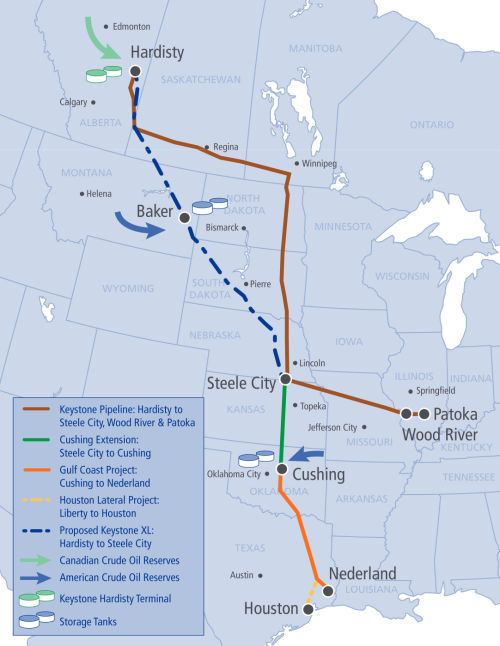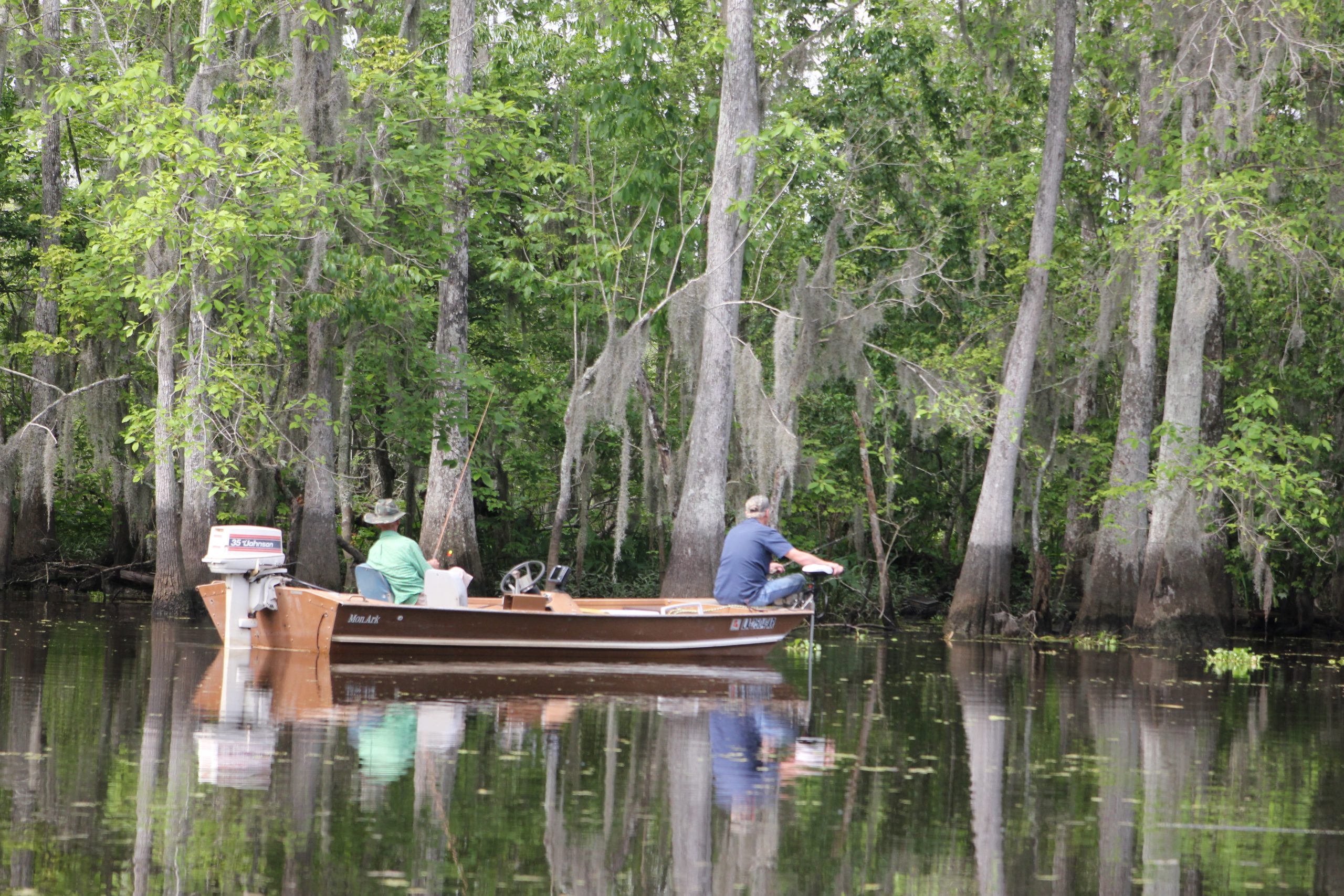
Bagel more than breakfast
May 21, 2014
Amid rapid growth, Danos eyes more opportunities
May 21, 2014A Canadian oil company’s quest to lay the last leg of its oil pipeline within U.S. soil is on hold, now that a Senate bill allowing the action has been derailed.
But debate over the Keystone XL pipeline continues echoing in the contentious race between Rep. Bill Cassidy, R-Baton Rouge, and Sen. Mary Landrieu, D-Louisiana, whom he wishes to unseat.
Senate Republicans last week blocked a vote on a bipartisan clean energy bill – angered by Majority Leader Harry Reid’s refusal to consider amendments they had proposed.
That caused Reid to block a stand-alone version of the bill OK’ing the pipeline, which would have created a congressional override of President Barack Obama’s reluctance to allow the pipeline through executive action.
The specific importance of the Keystone XL pipeline to Louisiana – and south Louisiana in particular – is itself a topic of quiet debate. Its importance to the entire mosaic of U.S. energy policy and practice, on the other hand, is generally undisputed.
The politically partisan aspects of the Keystone debate would appear to obfuscate the most basic facts about the pipeline, however.
Keystone’s perceived importance to Louisiana has been the subject of harsh news releases from Cassidy.
POLITICAL HAY
The Cassidy camp says Landrieu, as chair of the Senate Energy Committee, is an ineffective leader because she could not overcome Democratic Party resistance to Keystone, which is a concept she supports. Cassidy’s statements are meant to attack Landrieu’s claim that her seniority is a plus for the Bayou State.
There is no suggestion that she agrees with Obama’s reluctance to approve the pipeline.
The record shows her urging former Secretary of State Hillary Clinton to work with Canadian officials to make the project happen as early as 2011.
When the bill forcing approval of the pipeline was bound for the Senate floor, Republicans wanted it bundled with amendments to a clean energy bill that blocked new regulations on coal-burning power plants proposed by the Environmental Protection Administration. Reid blocked the bundling, calling for an up-and-down vote separately on both measures.
When Republicans wouldn’t go along Reid was able to procedurally kill the Keystone bill, for now delaying any vote.
A SLOW PROCESS
The Obama administration has not been friendly to the project, which environmentalists oppose. A Landrieu spokesman, Matthew Lehner, said criticism of Landrieu for Reid’s action is unfair, because the bill was not do-or-die.
“Support has grown and she has been part of the effort to build that support,” Lehner said. “When Sen. Landrieu talks about effectiveness, it is about the long term.”
Overall, the spokesman said, the entire process of getting such a bill passed or progress approved is slow and difficult. Certainly, a project such as Keystone should be no different, he surmised.
So what is it specifically that is being discussed?
BASIC FACTS
The Keystone XL Pipeline is a proposed 1,179-mile, 36-inch-diameter crude oil pipeline beginning in Hardisty, Alberta, and extending south to Steele City, Nebraska, according to TransCanada.
In addition to transporting Canadian crude – a particularly thick and “dirty” oil, according to critics – the pipeline will increase the potential for U.S. producers to access refineries in the Midwest and the Gulf Coast.
TransCanada says construction could result in 9,000 U.S. jobs, primarily in the building of the pipeline.
An initial permit application got a thumbs-down from Obama.
In 2012, TransCanada filed a new application for a presidential permit with the U.S. Department of State, a requirement for building any cross-border pipeline. TransCanada also chose to proceed with the southern portion of its Keystone expansion as a separate project, the Gulf Coast Pipeline Project.
Nebraska Gov. Dave Heineman approved the planned route through his state in Jan. 2013. Five other states would be affected. The governors of those – Montana, South Dakota, Kansas, Oklahoma and Texas – approve.
“The revised route will minimize disturbance of land, water resources and special areas in the state,” TransCanada states, noting that three months later the Department of State released a draft environmental impact statement reaffirming its environmental soundness.
DIRTY OIL
The National Wildlife Federation is among organizations opposed to the pipeline, stating that people and animals would be at risk from toxic spills, polluted water and other related issues.
The NWF’s biggest objection, however, is that the pipeline would “drive development in Canada’s tar sands region, one of the biggest threats to our global climate.”
The U.S., the NWF notes, already imports 800,000 barrels of tar sands oil daily.
The increase from the pipeline would open up new markets for tar sands oil, particularly high in carbon, which, according to environmentalists, would make the U.S. even more dependent on a type of oil that is seen as inherently unfriendly to the environment and the stability of the climate.
Supporters of the pipeline say the mode of transport is the safest possible from an environmental perspective, and that if Canada can’t get its oil to the U.S. through a pipeline, transport by rail or water are the next options.
Lehner presents Landrieu’s pro-Keystone argument in simple terms.
“Keystone has become such a symbolic pipeline but it is only 1,000 miles long and we have 2.6 million miles of pipeline already,” he said, framing one of Landrieu’s primary arguments. “We already have all this pipe laid; we need to lay more to transport the energy from refiners to consumers.”
While Keystone has spawned political press releases whose intended audiences include people in the southeastern parishes, there has been little apparent discussion of it at ground level.
What Keystone discussions have emerged here appear to be couched more in general anti-Obama and anti-environmentalist rhetoric. Additionally, an overall understanding that what is good for big oil is good for Louisiana permeates.
“We as a region are so involved in oil and gas and the outer shelf is just booming,” said Jane Arnette, of the South Central Industrial Association. “I am not hearing anything against it. The oil and gas industry is such a positive and it is so dominant. We stay focused on our interest, which is offshore.”
Steve Rabalais, director of the Port of Terrebonne, said it is possible the pipeline could have a negligibly negative effect on the Bayou Region’s deep-water oil markets, which could affect demand for vessels and offshore services. But he acknowledges that is mere speculation, and that no one has enough hard information to gaze into that particular crystal ball.
SENATE CANDIDATES AGREE
Cassidy, on the other hand, is quite bullish on the Louisiana benefits. He estimates 20,000-direct and 100,000-indirect jobs will be generated by the project overall.
“Louisiana is a leader in pipeline construction,” the congressman said. “Louisiana workers and companies will be among those hired.”
Louisiana refineries working directly with the Canadian oil are in Lake Charles and not in other regions. Keystone, if built, is projected to end its southern trek in Nederland, Texas, near the Lake Charles border.
“While the refineries may be in Texas, every Louisiana city will benefit. There is not a conflict in the Bayou Region because many jobs in the bayou are maritime or construction jobs,” Cassidy said. “The overland delivery of oil from Canada will increase maritime jobs to ship oil across the U.S. and the world. As long as the U.S. is importing oil from the Middle East, there will be need for Canadian and deep-water oil … The peak of worldwide oil demand is far off in the future. Until it is reached, there will be demand for deep-water oil, as well as Canadian oil.”
Except for their strong political divisions, Cassidy and Landrieu are not far apart so far as the perceived importance of Keystone is concerned.
“The construction of the Keystone pipeline is very important to create thousands of high-paying jobs, push our economy forward and send a signal to the world that North America intends to step up to the competition and become an energy powerhouse,” Landrieu said, after introducing the bill that would have over-ridden presidential objections. “The review process has been thorough. The five studies that have been conducted, as required by law, are complete. It is time to stop studying and start building. We cannot lose this opportunity to create tens of thousands of jobs and $20 billion in economic activity.”














